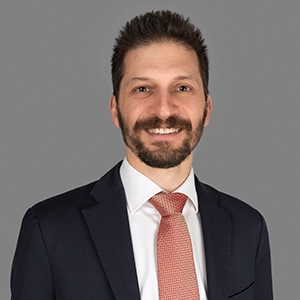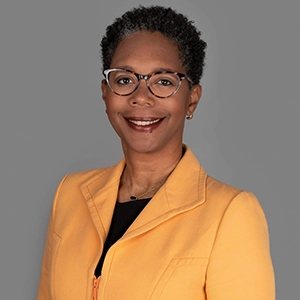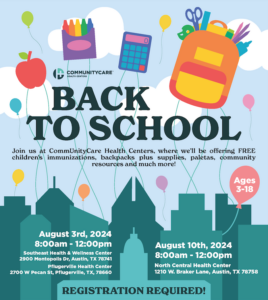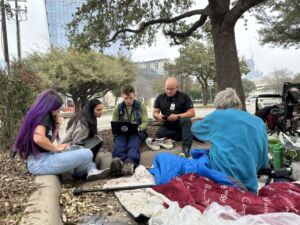Do Not Close the Doors on Community Health Centers
 By Nicholas Yagoda, MD, CEO for CommUnityCare Health Centers
By Nicholas Yagoda, MD, CEO for CommUnityCare Health Centers
As CEO of one of the nation’s largest community health centers — and as a doctor who has spent my career working to advance healthcare access for all — I am deeply concerned by the new guidance from the Department of Health and Human Services barring people living in the U.S. without legal documents from accessing taxpayer-funded programs, including the federal Health Center Program.
On its face, this might sound like standard policy. Most taxpayer-funded benefits exclude undocumented individuals. But for nearly 30 years, community health centers have been a deliberate and important exception. And for good reason: preventive and primary care for everyone not only saves lives but also keeps costs down for our communities and the health system as a whole.
Health centers were created to serve anyone in need, regardless of race, gender, income, or immigration status. After all, illness and disease know no boundaries. That principle has never been in doubt — until now.
Last year, CommUnityCare in Austin cared for more than 140,000 patients. Across the U.S., community health centers served 32.5 million people. Most were uninsured or covered by Medicaid. We are the front line of prevention. We keep people healthy and nurture thriving communities.
Removing this carve-out will not solve the national debate over immigration or save taxpayers money. Rather it will make people sicker, pushing them out of primary care and into the emergency rooms, while driving up costs for hospitals and taxpayers. It will increase the spread of preventable disease at a time when we’re still recovering from COVID and battling the largest measles outbreak in 33 years. It will leave us further behind other high-income nations around the globe in key health outcomes. This new HHS guidance expressly directs the medical community to abandon our sacred commitment to do no harm.
And it will hurt our communities. Undocumented residents are not outsiders; they are part of our social fabric, contributing vital services to strengthen our community. Many live in families that include U.S. citizens. Denying them access to basic care is not just inhumane — it’s shortsighted and dangerous for our public and economic health.
The health center carve-out existed for a reason. It recognized a simple truth: caring for each one of us leaves us all safer, stronger, and more secure. That truth has not changed. HHS should reverse this guidance immediately. Congress should make it crystal clear that community health centers must remain open to everyone — our nation’s health depends on it.
____________
The official guidance provided by HHS is posted here. The guidance provides a 30-day public comment period. Comments must be submitted to HHS by 11:59 PM EDT on August 13th, 2025. They can be submitted via the Federal Register here.
CommUnityCare follows statutory and regulatory requirements and until further notice, in the setting of conflicting interpretation, will continue to serve all patients in need of healthcare services, regardless of immigration status.



 CommUnityCare Health Centers is excited to announce Cristie Pellegrini has been promoted to Chief Pharmacy Officer, where she will lead the strategic, clinical, financial, and operational oversight of the organization’s pharmacy services.
CommUnityCare Health Centers is excited to announce Cristie Pellegrini has been promoted to Chief Pharmacy Officer, where she will lead the strategic, clinical, financial, and operational oversight of the organization’s pharmacy services. CommUnityCare Health Centers is proud to celebrate Dr. John Weems, Associate Director of Addiction Medicine, for receiving the prestigious Ruth M. Bain Young Physician Award by the Travis County Medical Society (TCMS). This accolade recognizes physicians 40 years or younger, or with fewer than eight years in practice, who are admired by their colleagues as model physicians. Dr. Weems’ unwavering dedication to addiction medicine, his transformative impact on patients, and his leadership in addressing one of today’s most pressing public health crises make him exceptionally deserving of this honor.
CommUnityCare Health Centers is proud to celebrate Dr. John Weems, Associate Director of Addiction Medicine, for receiving the prestigious Ruth M. Bain Young Physician Award by the Travis County Medical Society (TCMS). This accolade recognizes physicians 40 years or younger, or with fewer than eight years in practice, who are admired by their colleagues as model physicians. Dr. Weems’ unwavering dedication to addiction medicine, his transformative impact on patients, and his leadership in addressing one of today’s most pressing public health crises make him exceptionally deserving of this honor. Starting November 1, Executive Order GA-46 requires public hospitals to collect immigration status information from patients. However, this rule does not apply to CommUnityCare Health Centers or Carousel Pediatrics.
Starting November 1, Executive Order GA-46 requires public hospitals to collect immigration status information from patients. However, this rule does not apply to CommUnityCare Health Centers or Carousel Pediatrics. In honor of National Health Center Week, CommUnityCare Health Centers is excited to host three back-to-school events to prepare Central Texas children for the upcoming school year.
In honor of National Health Center Week, CommUnityCare Health Centers is excited to host three back-to-school events to prepare Central Texas children for the upcoming school year. The first stop is a parking lot in downtown Austin, where the team encounters an older gentleman experiencing a new cough and shoulder pain. This is only the first of many stops throughout the day to help anyone facing barriers and unable to access healthcare at one of the 28 CommUnityCare Health Centers across Travis and Williamson County.
The first stop is a parking lot in downtown Austin, where the team encounters an older gentleman experiencing a new cough and shoulder pain. This is only the first of many stops throughout the day to help anyone facing barriers and unable to access healthcare at one of the 28 CommUnityCare Health Centers across Travis and Williamson County.